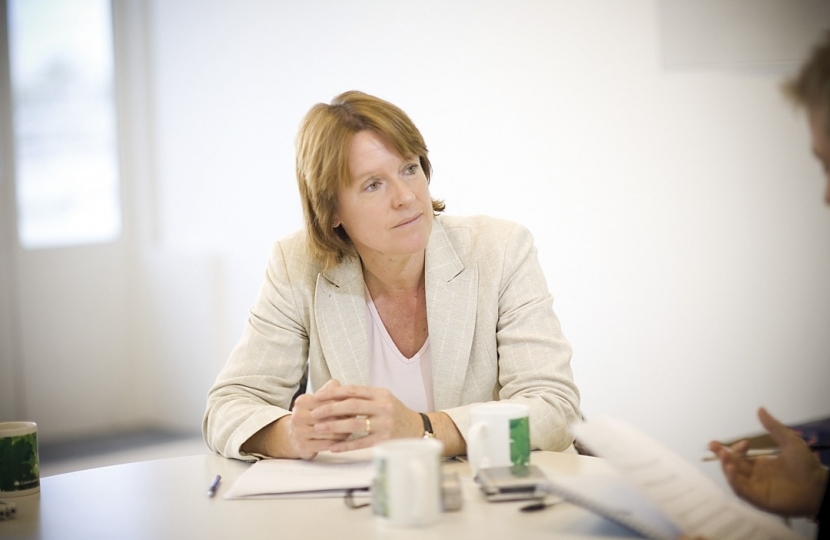
Following the Prime Minister’s speech on EU membership, local MP Caroline Spelman has signalled her strong support for his views.
She said: “David Cameron has pledged to give people a say on Britain's future membership of Europe in a balanced speech pointing out that the EU has helped to secure peace in Europe but now needs to deliver the prosperity we all need. To achieve this the EU needs to become more competitive in the global race for trade. He recognises the importance of the Single Market which accounts for half our tradeand the benfit of having more power as a block of countries in international negotiations but the EU must address slow decision-making and the burden of regulation.
“The PM has made it quite clear that he wants the UK to remain in the EU but with less interference from Brussels, entirely in keeping with the longstanding position of the Conservative party of being "in Europe but not run by Europe". This has always been the view of the mainstream of the Conservative party of which I am a member. This unites Conservative MPs in the belief that the UK national interest is best served working for changes and reforms within the EU, not being marginalised on the fringes.
Just consider a few of the facts:
Roughly half of all UK exports go to the EU and trade growth with the new EU member states has been dynamic. The value of UK exports to the EU in 2011 was €159bn compared to €140bn for the rest of the world. We trade more with Ireland than Brazil, China, India and Russia put together. We enjoy free access with low tariffs to the EU market and no border formalities, which would be at risk if we left the EU.
The UK is the leading EU country for inward investment, much of which has driven by our strong position as the gateway to the European Single Market, the largest open economic area in the world.
All member states contribute to the EU Budget rates of 1% of national GDP, compared to UK public spending which is 50% of GDP. Our net contribution is 8-9 billion pounds after taking into account the funds flowing back to us from the EU, in areas such as regional funds, research and farm support.
The Treasury calculates each household benefits between £1500-3500 per year from the extra economic activity resulting from EU membership. If we left the EU, we would still need to fund farm support, and find other ways of supporting research and economic development. If our exports to the UK started to be subject to a tariff of just 5%, this would be equivalent to our net contribution of £8bn.
The EU Commission staff consists of 33,000 civil servants compared 82,000 in our HMRC alone. A significant number are translators and interpreters.
House of Commons research shows that only 6.8% of primary legislation and 14.1% of secondary has anything to do with EU obligations.
Average working hours in the EU are 37.2 hours per week compared to 36.2 in the UK.
"European interference" in Human Rights issues does not come from the EU but arises from us signing the European Convention in 1947 in the aftermath of WWII.
“Those who argue the UK would be better off out of the EU overlook the fact that the other 26 countries are in a strong negotiating position, for whilst 50% of our trade is with them only 11% of their trade is with us. Any agreement giving us continued access to the Single EU Market would have a price. In exchange for privileged access to the single market Switzerland and Norway have to comply with all the relevant EU regulations while having no say in how they are written. They also have to make a significant financial payment for EU market access. So we need to think hard. The EU is a market of 500 million people who enjoy the highest standards of living in the world. According to the IMF and the World bank the EU's GDP is 2.5 times that of China and 9 times that if India.
“Outside the EU we would lose power and influence. I negotiated two multi-lateral agreements on behalf of the UK as Environment Secretary but as part of a united EU. Alone we would have had less influence opposite big countries like China and the US who are competitors for trade. So there is a need for a hard-headed look at the facts about our membership. Of course I acknowledge the EU's shortcomings but we should be working to improve the way the EU does business in the tradition of Margaret Thatcher who promoted the Single market and John Major the benefits of enlargement.”


